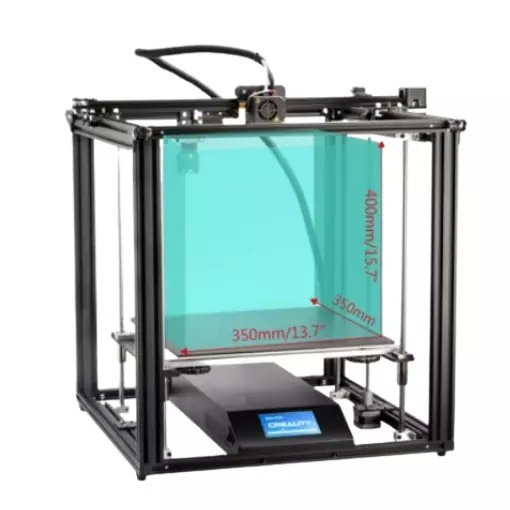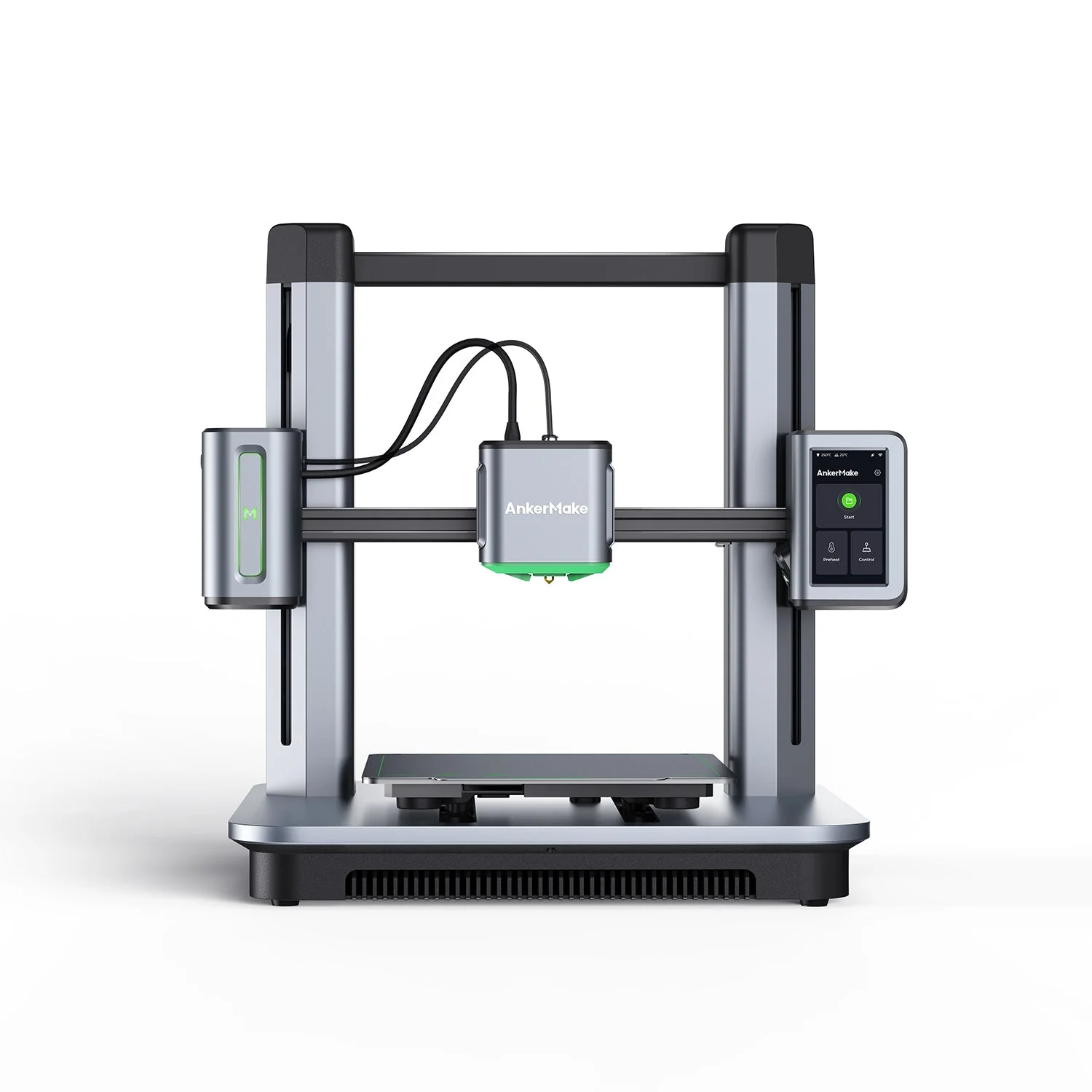Compare Ender 5 Plus vs M5
Comparison between the best 3D printers
Choose the best 3D printer at the best price. The cheapest 3D printers are here.
Buy a 3D printer here with 3D Fila.
 |
 |
|
| Model | Ender 5 Plus[BUY Ender 5 Plus] |
M5 |
| Printing Material | Filament | Filament |
| Buy Filament for Creality 3D Ender 5 Plus | Buy Filament forAnkerMake M5 | |
| Estimated price | $599,00 | $497,00 |
| Manufacturer | Creality 3D | AnkerMake |
| Release Year | 2019 | 2023 |
| Print Volume [mm] | 350x350x400 | 235x235x250 |
| Printer Size [mm] | 632x619x666 | 502x438x470 |
| Weight [kg] | 18,2 | 12,6 |
| Power Loss Recovery | YES | YES |
| Enclosed printer | NO | NO |
| Bed Leveling | Automatic | Automatic |
| Filament End Sensor | YES | YES |
| Bed type | Heated | Heated |
| Power supply system | Bowden | Direct Drive |
| Standard nozzle | 0,4 | 0,4 |
| Maximum Nozzle Temperature [°C] | 260 | 260 |
| Maximum Bed Temperature [°C] | 100 | 100 |
| Maximum printing speed [mm/s] | 180 | 500 |
| Filament holder | YES | YES |
| Camera for supervision | NO | NO |
| Recommended filaments | PLA, TPU, ABS, PETG | PLA, PETG, ABS |
| Recommended slicers | Cura, Simplify, Slic3r | AnkerMake Studio (macOS, Windows), Simplify3D, Ultimaker Cura, PrusaSlicer |
| Maximum Resolution [mm] | 0,1 | 0,1 |
| Processor | 32 bits | |
| Display | Touchscreen TFT 4,3'' | Touchscreen 4,3'' |
| Power Supply | 24V / 504W | 350 W |
| Connectivity | SD / USB | Wi-Fi, USB-C, OTA Upgrade |
| Operating systems | Windows, Mac, Linux | Windows, Linux, Macbook |
| Date of registration in the system | 2021-04-14 | 2024-07-08 |
| Release date | 2019 | 2023 |
| Extra features | The Ender 5 Plus offers a large print volume (350x350x400 mm) and fast assembly. It includes a BLTouch sensor, but with range limitations. It stands out for its dimensional accuracy, although it requires adjustments to the slicer settings. Despite the noise, its integrated design saves space, and includes features such as a filament sensor and power resumption. Ideal for large projects, it requires refinement in the settings for high-quality prints. | The AnkerMake M5 printer stands out for its impressive print speed, reaching up to 500mm/s. It features AI print monitoring, an integrated camera for creating timelapses, auto-leveling bed with pressure sensor, direct extruder, flexible PEI-coated build plate, and Wi-Fi and USB-C connectivity. Assembly is quick and easy, and the printer is designed to deliver high print quality and ease of use. |
| Support for multiple colors and materials (AMS and CFS) | NO | NO |
Notes * |
||
| Cost-benefit | 6 / 10 | 7 / 10 |
| Hardware | 2 / 10 | 3.5 / 10 |
| Tela | . | . |
| Print volume | 4 / 10 | 3 / 10 |
| Performance | 1 / 10 | 4 / 10 |
| [BUY Ender 5 Plus] |
Conclusion |
| In conclusion, the comparison between the Ender 5 Plus and the AnkerMake M5 highlights key differences that cater to varying user needs and preferences in the 3D printing landscape. The Ender 5 Plus, while older and positioned at a higher price point, offers a larger print volume and is well-suited for users focused on large-scale projects. It boasts reliable dimensional accuracy and essential features like a filament sensor and power loss recovery, though it may require some adjustment in slicer settings for optimal performance. However, its overall performance and hardware score suggest that while it is a solid choice, it may not lead in terms of speed and efficiency. Conversely, the AnkerMake M5 positions itself as a more modern option, featuring remarkable print speeds and user-friendly enhancements such as AI print monitoring and direct drive extrusion. It provides a more efficient assembly experience and offers flexibility with its connectivity options. Additionally, the M5's performance rating indicates a significant advancement in overall usability and print quality. Ultimately, the AnkerMake M5 emerges as the stronger option, particularly for users seeking a blend of speed, ease of use, and up-to-date technology, all at a lower price point. The Ender 5 Plus may appeal to those who prioritize a larger build volume and are willing to invest time in tuning their settings for quality output. Users should base their decision on their specific needs, whether that be volume or speed and modern features. |

